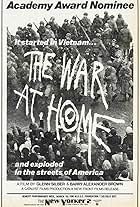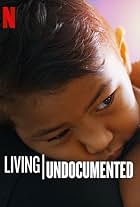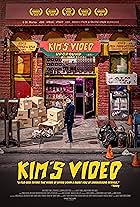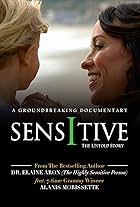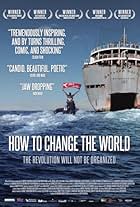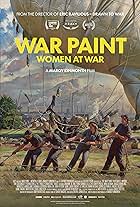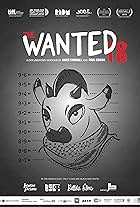
Sil-Azevedo
Joined Jun 2024
Welcome to the new profile
We're still working on updating some profile features. To see the badges, ratings breakdowns, and polls for this profile, please go to the previous version.
Ratings189
Sil-Azevedo's rating
Reviews35
Sil-Azevedo's rating
It's remarkable how much director Garrett Bradley and her editors achieved with so little. Working on a micro budget and a mix of her footage and old video tapes, Bradley chose to unify it all in elegant black and white, while focusing on what truly matters: the story. And what a story it is-a deeply human tale of circumstances, choices, and consequences that stretch far beyond what most of us can imagine.
Anchored by a powerful woman at its center, Fox Rich, the film catches you and never lets go. If you care about people, you will care about this family. Time is a scathing indictment of our racist economic and penitentiary systems. We can-and must-do better.
Anchored by a powerful woman at its center, Fox Rich, the film catches you and never lets go. If you care about people, you will care about this family. Time is a scathing indictment of our racist economic and penitentiary systems. We can-and must-do better.
In a time when erasing history is touted as the way back to greatness, this film offers a different take: remembering our darkest moments gives us a chance to heal, learn, and do better.
The film is a beautifully shot documentary that weaves the stories of Indigenous students who suffered unspeakable torment at the hands of the Canadian Indian residential school system. This is not an isolated incident, as there were hundreds of similar schools in Canada and the U. S. with the goal of "assimilating" Natives into the European culture.
From the National Geographic page for the film: "In 2021, evidence of unmarked graves was discovered on the grounds of an Indian residential school run by the Catholic Church in Canada. After years of silence, the forced separation, assimilation and abuse many children experienced at these segregated boarding schools was brought to light, sparking a national outcry against a system designed to destroy Indigenous communities. Set amidst a groundbreaking investigation, SUGARCANE illuminates the beauty of a community breaking cycles of intergenerational trauma and finding the strength to persevere."
This film premiered at Sundance, where it won the Grand Jury award for Directing. It is one of the five nominees for Best Feature Documentary at this year's Oscars and has a 100% rating on the Tomatometer (with 65 reviews). Don't let the Disney label fool you. This is not a light film. It is a punch to the gut, but also tender, beautiful and healing. And we need this more than ever if we hope to be truly great.
The film is a beautifully shot documentary that weaves the stories of Indigenous students who suffered unspeakable torment at the hands of the Canadian Indian residential school system. This is not an isolated incident, as there were hundreds of similar schools in Canada and the U. S. with the goal of "assimilating" Natives into the European culture.
From the National Geographic page for the film: "In 2021, evidence of unmarked graves was discovered on the grounds of an Indian residential school run by the Catholic Church in Canada. After years of silence, the forced separation, assimilation and abuse many children experienced at these segregated boarding schools was brought to light, sparking a national outcry against a system designed to destroy Indigenous communities. Set amidst a groundbreaking investigation, SUGARCANE illuminates the beauty of a community breaking cycles of intergenerational trauma and finding the strength to persevere."
This film premiered at Sundance, where it won the Grand Jury award for Directing. It is one of the five nominees for Best Feature Documentary at this year's Oscars and has a 100% rating on the Tomatometer (with 65 reviews). Don't let the Disney label fool you. This is not a light film. It is a punch to the gut, but also tender, beautiful and healing. And we need this more than ever if we hope to be truly great.
What do jazz and a Coup d'Etat in Central Africa have in common? This documentary by Belgian filmmaker Johan Grimonprez uses a wide selection of historic footage to tell the story, spy thriller style. From American jazz greats such as Louis Armstrong and Nina Simone performing in Africa as good-will ambassadors, to on-the-ground scenes in the Congo as a Coup dÉtat brewed, powerful images fill the screen in rapid sequence. The narrative moves fast for 2 hours and 30 minutes, fusing music, sound, images and graphics to create a new kind of film. Although scenes were shot over half a century ago, the film feels fresh, urgent and contemporary.
This is not a "casual watching" kind of movie. I am glad I watched at home, because I had to stop and rewind a few times. At the end of the intense 150 minutes, one feels they experienced an immersion into a period of history through contemporary eyes, a rewarding dive. Brilliantly researched and edited, a Sundance Cinematic Innovation award recipient and Oscar nominee for Best Documentary, this film moves like jazz.
This is not a "casual watching" kind of movie. I am glad I watched at home, because I had to stop and rewind a few times. At the end of the intense 150 minutes, one feels they experienced an immersion into a period of history through contemporary eyes, a rewarding dive. Brilliantly researched and edited, a Sundance Cinematic Innovation award recipient and Oscar nominee for Best Documentary, this film moves like jazz.

